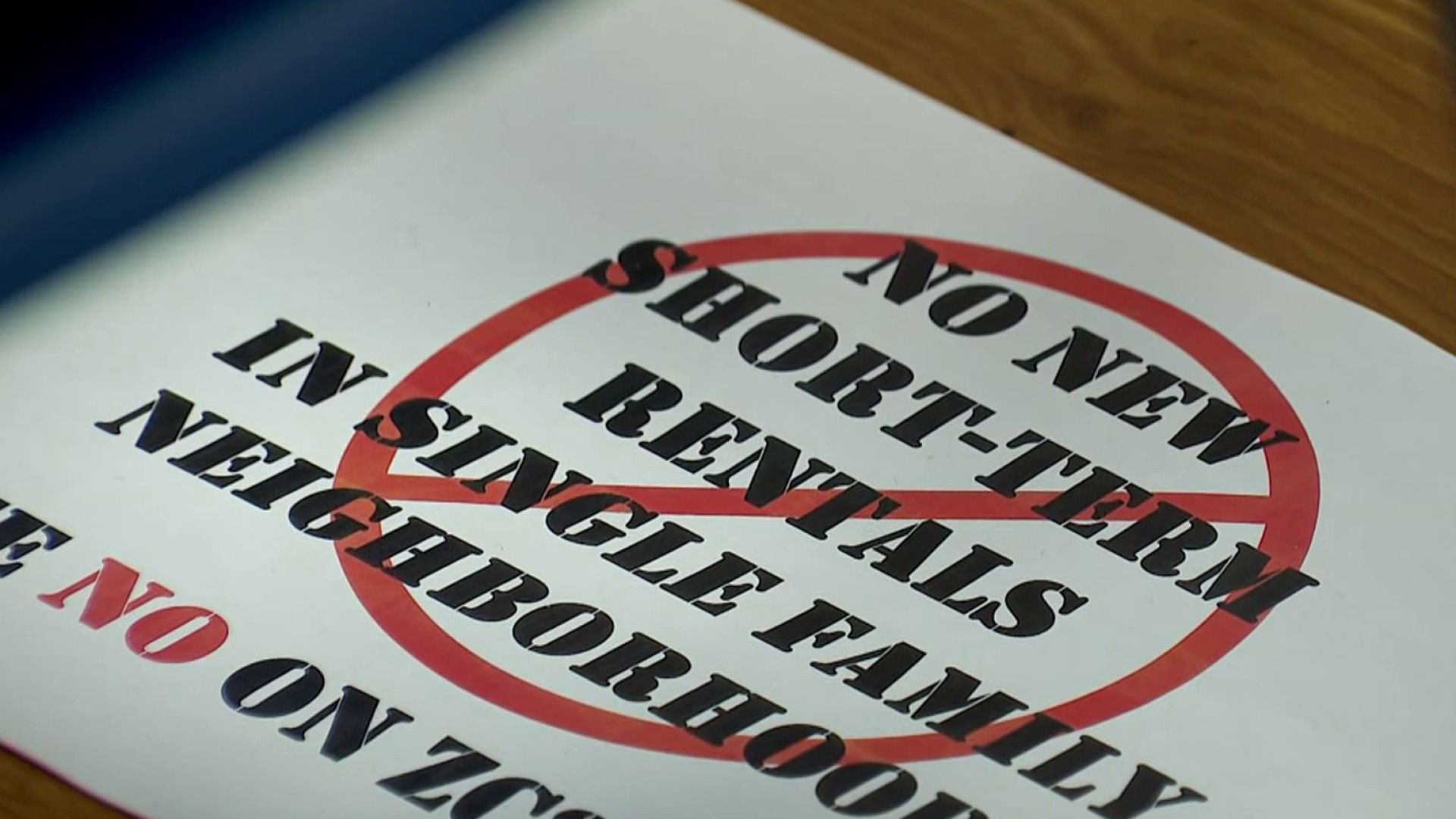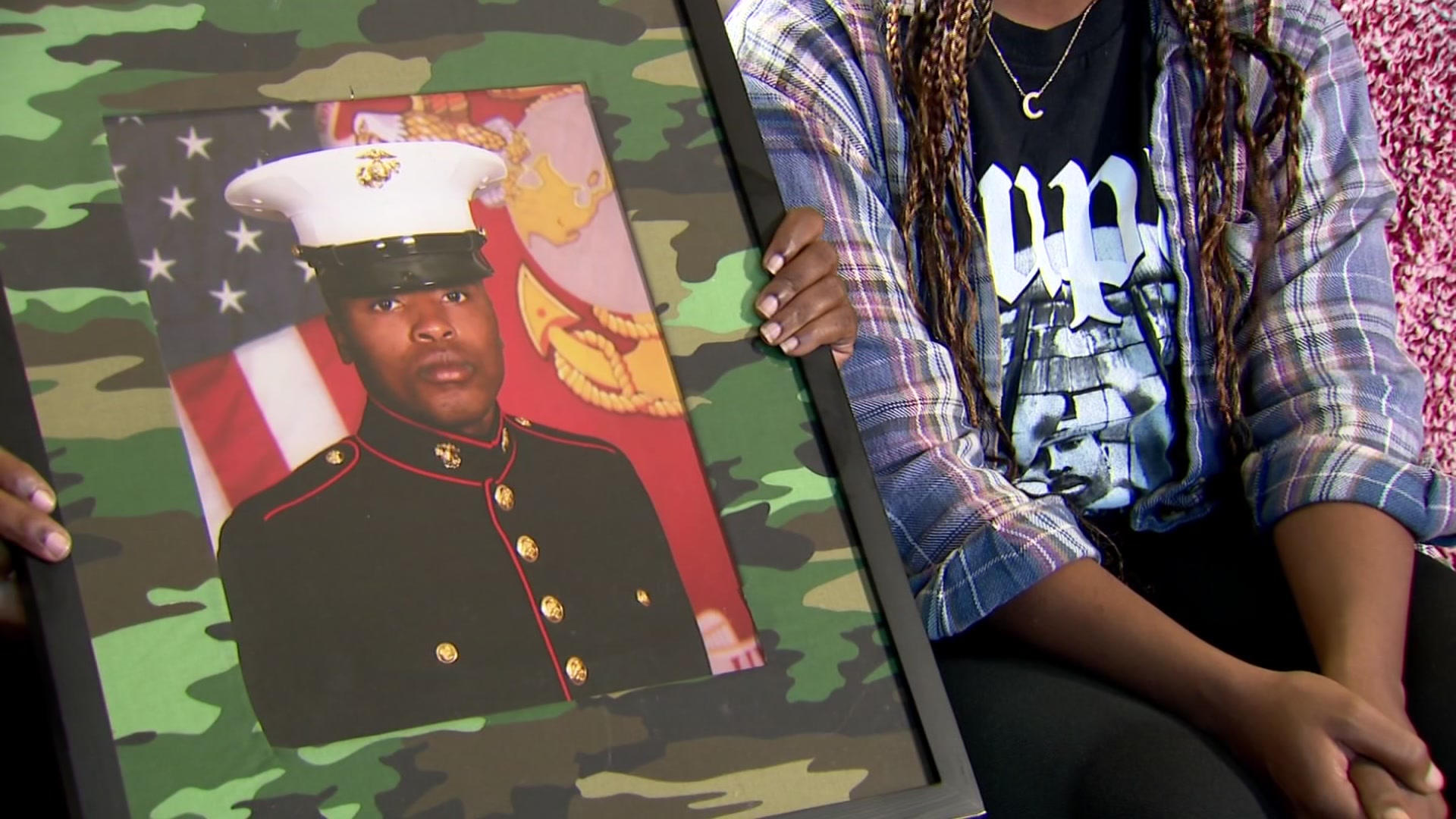Billy Graham, one of the nation’s most powerful preachers who helped usher evangelical Christianity into the American mainstream through televised sermons, best-selling books, political appearances and stadium revivals, died Wednesday at the age of 99.
The Billy Graham Evangelistic Association confirmed his death to NBC News. Graham, who long suffered from cancer and other ailments, died at his home in North Carolina.
In his final decade, Graham had suffered Parkinson’s disease and loss of hearing and vision, which forced him to substantially retreat from the public eye. He had been hospitalized several times since May 2011 with pneumonia and respiratory problems, most recently on Nov. 20.
President Donald Trump honored Graham on Twitter Wednesday morning, writing, "The GREAT Billy Graham is dead. There was nobody like him! He will be missed by Christians and all religions. A very special man."
In his final years, even when his brown hair transformed to a shock of white and the finger swiping that punctuated his most passionate speeches faded to milder gestures, Graham continued his decades-long legacy of counseling American leaders and using his influence to gently nudge the course of national politics. During 2012 presidential race, Graham prayed with both President Barack Obama and former Massachusetts Gov. Mitt Romney, as he had with a long string of other presidents and their rivals, but threw his support behind Romney, urging his followers to “vote for biblical values this Nov. 6 and pray with me that America will remain one nation under God.” He also weighed in on the gay marriage debate, urging North Carolinians to vote for a state marriage amendment that would firmly ban same-sex unions—an amendment that passed by a comfortable margin but later made moot by the U.S. Supreme Court ruling. As he always had, he faced criticism from both sides, some decrying his meddling in secular politics, and others arguing that he did not wield his influence more forcefully in one direction or the other.
It was the sort of criticism he had faced throughout his years as an ordained minister that saw the civil rights movement, which he supported, the sexual revolution of the 60s, which he opposed, wars and disease, economic prosperity and decline.
His influence, however, had always been more religious than political and was far less partisan than that of other evangelical leaders of his time. Throughout his career, he developed relationships—often close relationships—with Republican and Democratic presidents.
He spent time in Kennebunkport, Maine, with President George H. W. Bush and his family, and was by the Clinton’s side during Bill's tumultuous second term. In an interview with Time magazine, Graham said he tried to emphasize to all the leaders he grew to know and love, the need for them “to have love for the people who were opposed to them.”
Bush remembered his "good friend" in a statement, writing, "Billy Graham was America's pastor. His faith in Christ and his totally honest evangelical spirit inspired people across the country and around the world. I think Billy touched the hearts of not only Christians, but people of all faiths, because he was such a good man. I was privileged to have him as a personal friend. He would come to Maine to visit with Barbara and me, and he was a great sport. He loved going really fast in my boat. I guess you could say we had that in common. Then we would come home and talk about life. He was a mentor to several of my children, including the former president of the United States."
George W. Bush also released a statement on Graham, saying, "A great man, a humble servant, and a shepherd to millions has passed on. Billy Graham was a consequential leader. He had a powerful, captivating presence and a keen mind. He was full of kindness and grace. His love for Christ and his gentle soul helped open hearts to the Word, including mine. Laura and I are thankful for the life of Billy Graham, and we send our heartfelt condolences to the Graham family."
Local
The latest news from around North Texas.
Though Graham was obviously not a Catholic, Bishop Edward J. Burns of the Dallas Diocese offered a statement about his passing late Wednesday morning: "We offer prayers of thanksgiving for the life and ministry of the Reverend Billy Graham, who tirelessly spread the Gospel of Jesus Christ throughout the United States and the world. His remarkable gift as a preacher and evangelist made a tremendous impact in our country as he led many lost souls to Christ. This faithful servant of the Lord will be missed and always remembered."
In remembrance of Graham’s legacy, Texas Gov. Greg Abbott has ordered Texas flags to be lowered to half-staff on the day of interment.
Abbott said Graham "left an indelible mark on America and the world. His passion to serve God and share His love touched countless Texans over the years. From his first major event in Fort Worth in 1951 to his final event in Dallas in 2002, Billy Graham brought the message of God’s love to stadiums and arenas across Texas. A counselor to many U.S. presidents – including those from Texas – he forever impacted the lives of everyday people around the world. The Rev. Graham’s legacy of compassion lives on through those he touched -- including his son, Franklin, whose Samaritan’s Purse ministry has been instrumental in helping Texans recover from Hurricane Harvey. Cecilia and I extend our heartfelt condolences to the entire Graham family, and we celebrate the life of this humble servant of God."
Among his many evangelical accomplishments Graham is well remembered in North Texas for hosting the first event at Texas Stadium, a four-day crusade in 1971 where he preached to nearly 500,000 people.
He also spoke at Southwestern Baptist Theological Seminary in Fort Worth in 1967. Graham's grandson was at the seminary Tuesday and was supposed to preach there Wednesday. Instead, the president of the seminary held a service to remember and honor Graham.
"I had two simultaneous reactions. My first one was one of absolute happiness and rejoicing, because I know that it must have been quite an entry into Heaven, and it is that for which he had lived and that which he longed. And so I rejoiced with him on it. On the other hand it was sad for us, because in a sense it’s the passing of an era," said Dr. Paige Patterson, president of the Southwestern Baptist Theological Seminary.
Seminary student Courtney McClen reflected on how Graham affected her life.
"I was very timid about my faith, but seeing his testimony, seeing the legacy that he has left here at Southwestern and among the whole evangelical community, I have become so bolstered in my evangelism," McClen said.
Pastor Dr. Jack Graham of Prestonwood Baptist Church worked with Billy Graham when he came to Texas Stadium for for the second time for a crusade.
"He had such a sincerity about him on the pulpit, and the integrity in his private life that he never wavered in his personal life and in his public life. He was the same," said Pastor Dr. Jack Graham.
"Rosalynn and I are deeply saddened to learn of the death of The Reverend Billy Graham," former president Jimmy Carter said in a statement. "Tirelessly spreading a message of fellowship and hope, he shaped the spiritual lives of tens of millions of people worldwide. Broad-minded, forgiving, and humble in his treatment of others, he exemplified the life of Jesus Christ by constantly reaching out for opportunities to serve. He had an enormous influence on my own spiritual life, and I was pleased to count Reverend Graham among my advisers and friends."
But those political ties proved problematic when his close friend Richard Nixon resigned in the Watergate scandal, leaving Graham devastated and baffled.
Graham preached to more than 215 million people and is credited with converting more than 2.5 million people to Christianity, according to the Billy Graham Evangelical Association, which he founded in 1950. He crisscrossed the globe, from the Congo to New York City, where he attracted more than 200,000 people in his final “crusade” in 2005. It was Graham who founded Christianity Today to help unify the country’s evangelical movement and made the “My Answer” column a regular feature in more than 200 newspapers. Fifty-six times, Graham earned a spot on Gallup’s list of the top 10 most admired men in the world, surpassing runner-up Ronald Reagan by a massive margin.
William Franklin Graham Jr. was born near Charlotte, N.C. on Nov. 7, 1918. At age 16 he met an evangelist who inspired him to become a preacher and soon enrolled in Bob Jones University, a religious college in Greenville, South Carolina. He continued his studies at Florida Bible Institute and later Wheaton College in Illinois where he met his future wife, Ruth McCue Bell, the daughter of missionaries. His rise to prominence is traced to the front-page coverage that the Hearst newspapers gave to his 1949 Los Angeles revival.
Graham preached about the sinfulness of man, the wrath of hell, but the promise of redemption from a forgiving and loving God. Though some of his views were divisive, his message was often one that encouraged unity and he was therefore often called upon in moments of national tragedy to offer comfort to the grieving. After the Sept. 11 terrorist attacks, he addressed the nation from the National Cathedral, proclaiming that “God cares for us, whatever our ethnic, religious or political background may be.”
Graham celebrated his 95th birthday on November 7, 2013, surrounded by hundreds of well-wishers. In a video, that was recorded over the past year and played at the party, Graham delivered what is being characterized as his final sermon. He spoke of Jesus Christ's saving power and expressed concerns about America's future.
"Our country's in great need of a spiritual awakening," he said. "There have been times that I've wept as I've gone from city to city and I've seen how far people have wandered from God."
Graham lost his wife Ruth in 2007 and will be buried by her at the Bill Graham Museum and Library. and is survived by their five children—Virginia Leftwich, Anne Morrow, Ruth Bell, William Franklin and Nelson Edman—19 grandchildren and many great-grandchildren.



